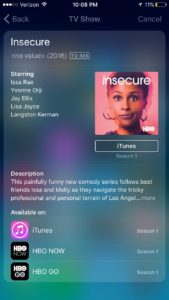We’ve been reading a lot in recent years about how people don’t download new Apps and how App discovery and the App Store are broken. The latter may not directly cause the former, but there’s definitely some impact. Apple wants you to use Apps; Apps make their expensive hardware that much more valuable to you. They even acknowledged this with that cute little video to kick off WWDC 2017. And it followed that Apple announced a whole new App Store for iOS 11. Apple’s Developer Site boasts: “Now the App Store has been redesigned from the ground up to provide a beautiful place to showcase amazing apps and to help customers discover new favorites.”
While the App Store was due for a change, I think the future of App discovery is the OS and not another App. I can’t remember the last time I downloaded an App just from browsing the App or Play Store. Yes, one has to go to the Store to download an App (for now), but you probably came to the store because you heard about this App from someone/somewhere else or there’s a specific action you’re trying to complete. Now this second part is where I think the opportunity exists.
App Discovery should be contextual. In a recent post on Notifications, Scott Belsky wrote about a ‘Notification Layer API‘ that “would take all kinds of data into account, like your location, your schedule, your propensity to engage with certain apps at certain times…” to make the Notifications you receive smarter. I propose this, but for App Discovery.
If my phone’s OS knows that I’m running or biking, why not suggest a fitness App or link me to that section of the App Store? Say I’m at transit hub like Penn Station; the OS should tell me that the NJ Transit App is a popular one in this area. Imagine some sort of OS level setting called “App For You” that I can opt into to get customized App suggestions. Yes, that could get annoying real fast, but if I could tune these settings to see only a few per week or so, this becomes very useful.
Apple, Google and Amazon are already taking steps towards this future, albeit in different ways.

Spotlight on iOS will suggest Apps, among other things, if I’m searching for specific TV Shows or Movies. This is a great use-case as I’m probably looking to watch that content and not just read about it. Apple has to ingest feeds from developers to make this work, which may explain why they have only extended this to a certain class of Apps at this time.
Google’s vision for Instant Apps is a great complement for contextual App discovery. Take my NJ Transit example above; if the OS can notify you of the App, Google wants you to buy tickets from the App without even having to download it! The consumer gets the streamlined ‘transaction’ an App provides, but they don’t have to commit to both space on their phone home screen and phone storage.
Amazon’s Echo may offer the best use-case in which to promote Apps (Skills in their case.) By talking to Echo’s Voice-Activated Assistant, Alexa, I’m most likely expressing intent. Alexa should then help me find the Apps/Skills that can fulfill my request, and it does. If I ask Alexa to order Pizza (I love Pizza), she’ll suggest I enable the Pizza Hut or Dominos Skill if I don’t already have it.
These examples bring to mind Google AdWords, where search terms are used to surface relevant products and services. But in addition to search terms, your phone can know so much more information about you and thus offer you even more powerful suggestions to help you transact.
Phones and the Apps on them help us live our lives by helping us conduct these transactions. An App is basically a transaction: we order food, we track our steps, we buy tickets with Apps. There will always be an App store, but instead of doubling down on that model of App discovery, we should be taking all the data and context we have about an individual and bring the App to them.